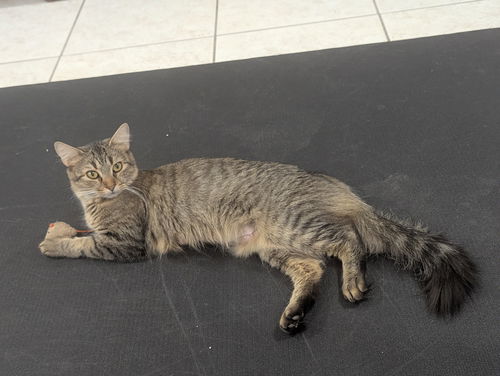Black Cats: A Brief History
This dates back at least as far as Ancient Egypt when the goddess Bast reigned in the 22nd dynasty. To court her favor, many Egyptians brought black cats into their households in the belief that Bast's spirit would become intertwined with the soul of the cat and prosperity would follow. Both rich and poor Egyptian families embalmed their deceased pets. Archaeologists have discovered entire pet cemeteries with mummified black cats.
In the 17th century, Charles I of England fiercely loved his precious black cat, going so far as to keep it under 24-hour guard. Eventually, the cat died. Charles I was heard to proclaim, "Alas my luck is gone!" The next day, he was arrested and charged with high treason and ultimately was executed.
In Scotland, a strange black cat on a porch is considered to bring prosperity. In Italy, a sneezing cat is good luck. In parts of Europe, if a black cat crosses your path, you are considered to have good fortune, and if a black cat walks into your home, you are truly blessed.
So when did black cats become a symbol of evil and misfortune?
A Change in Perception of Black Cats
As early as the 10th century in Wales, there were laws against the killing of cats. Welsh Ruler Hywel Dda recognized the value of cats, and even decreed that stealing them was a crime. But in 1232, Pope Gregory IX suggested that cats were diabolical associates of the devil. Religious zealots then killed cats, often by burning them alive. Black cats were especially hard hit, being associates of the devil in the minds of many.
Later, in the New World, puritans believed that black cats were in cahoots with witches. Those caught with black cats faced severe punishment, even death.
Pirates of the 19th century believed that if a black cat walked toward you, you would have bad luck. If a black cat walked onto your ship and then walked off it the ship was doomed to sink on your next trip.
In A Hungry Hoodoo (1920), an early animated cartoon, Felix the Cat experiences bad luck on Friday the 13th and believes he has himself jinxed by his coat color.
And in 1969, a black cat burst out onto the field during a critical baseball game between the Cubs and the New York Mets, ruining the Cubs playoff chances. The cat made a beeline for the Cubs' dugout where it seemed to stare down all of the players. The Cubs not only lost that game, but much of the rest of the season.
It's hard to pinpoint exactly why black cats figure so prominently in supernatural lore, but it's safe to assume that after many centuries of being bashed as evil incarnate, the black cat superstition is not going away anytime soon.




